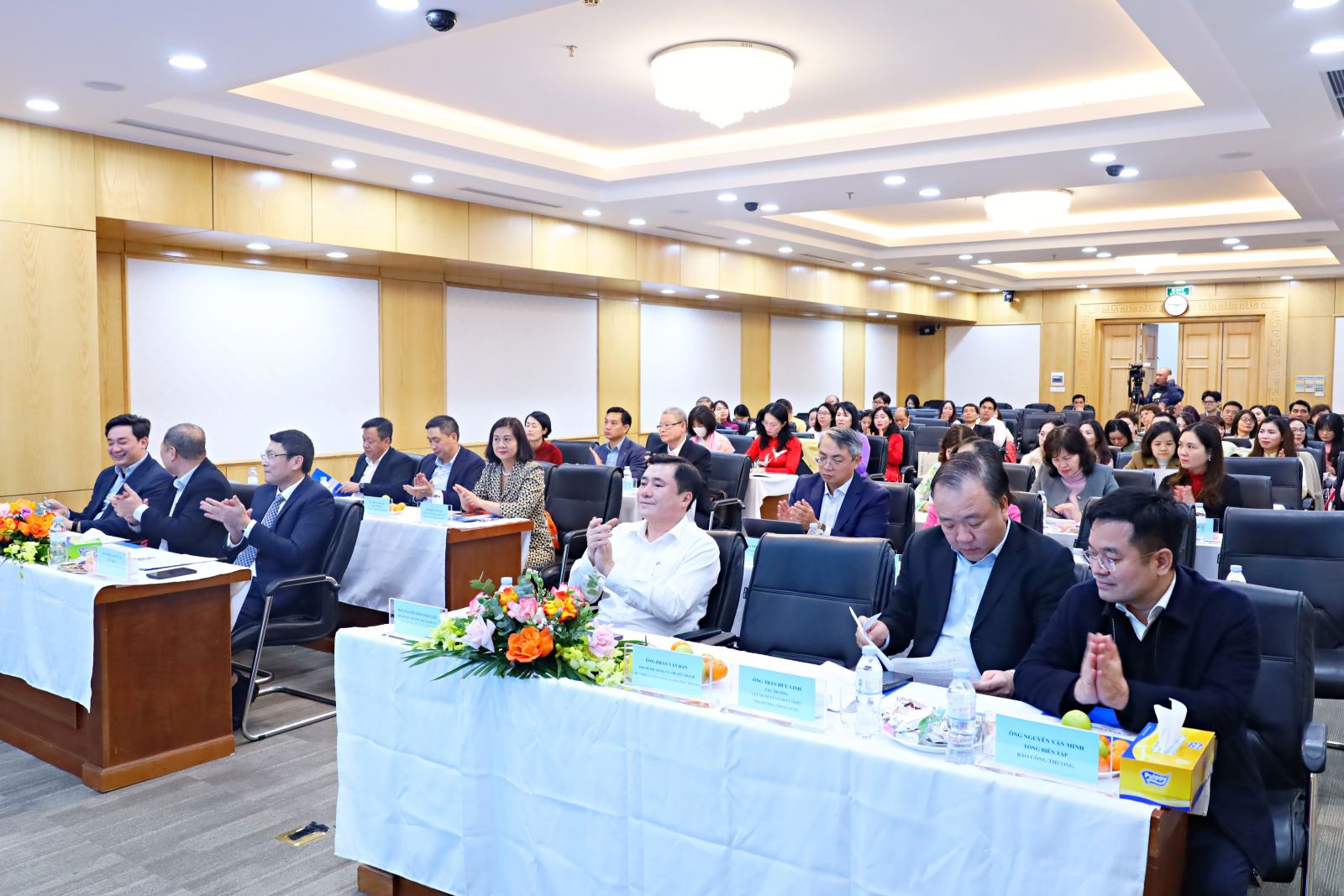
VCC reviews 2025, sets key tasks to boost competition and consumer protection
19:05 | 23/03/2025 14:11 | 08/01/2026Industry
Reaching consensus on legislative direction
On the morning of October 7 in Hanoi, the Ministry of Industry and Trade convened a meeting of the Drafting Committee for the Law on E-Commerce, chaired by Deputy Minister Nguyen Sinh Nhat Tan.
This was a key session to unify the drafting direction, review feedback from National Assembly deputies, relevant ministries, agencies, and committee members before finalizing the dossier for submission to the Government and the National Assembly at the upcoming 10th session.
In his opening remarks, Deputy Minister Tan emphasized that the drafting process had gone through multiple rounds of discussions and workshops and had now entered the final stage. The MoIT is working closely with National Assembly agencies to review all contents and related documents to ensure the feedback and explanations reflect real-world conditions and meet new legislative requirements in the era of digital transformation.
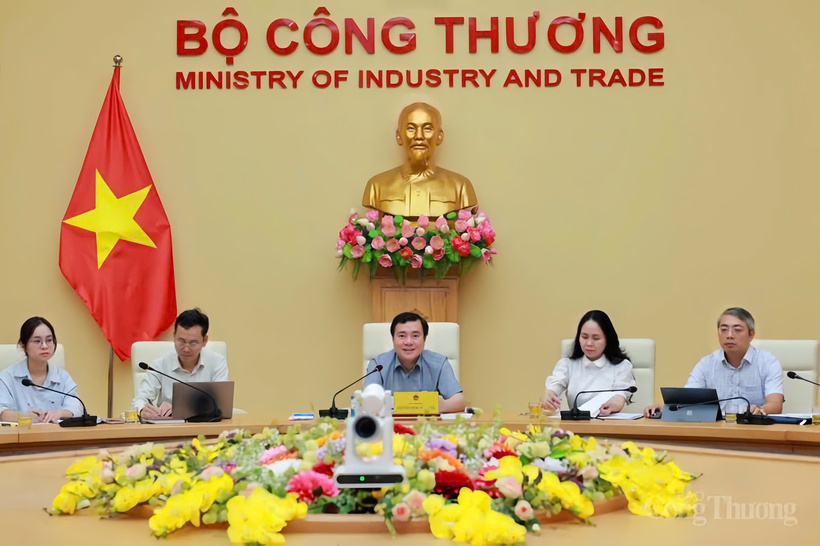
The October 7 morning session of the Drafting Committee for the Law on E-Commerce.
Deputy Minister Tan also highlighted major issues of concern to National Assembly deputies, including the law’s scope of adjustment, applicable subjects, consumer protection, and vulnerable groups.
Reporting on the progress of the draft law, Le Hoang Oanh, Director General of the E-Commerce and Digital Economy Agency, said the MoIT had incorporated numerous comments from ministries, sectors, and National Assembly bodies, particularly clarifying the law’s coverage, its relationship with other laws, and the responsibilities of e-commerce platforms.
During the session, committee members offered multiple comments to ensure the draft complies with legal procedures and aligns with the Government’s policies on promoting e-commerce development in the new period.
Ngo Chung Khanh, Deputy Director General of the Multilateral Trade Policy Department, stressed that the law should clearly stipulate requirements for foreign e-commerce platforms to have representatives in Vietnam to enhance consumer protection and strengthen state management.
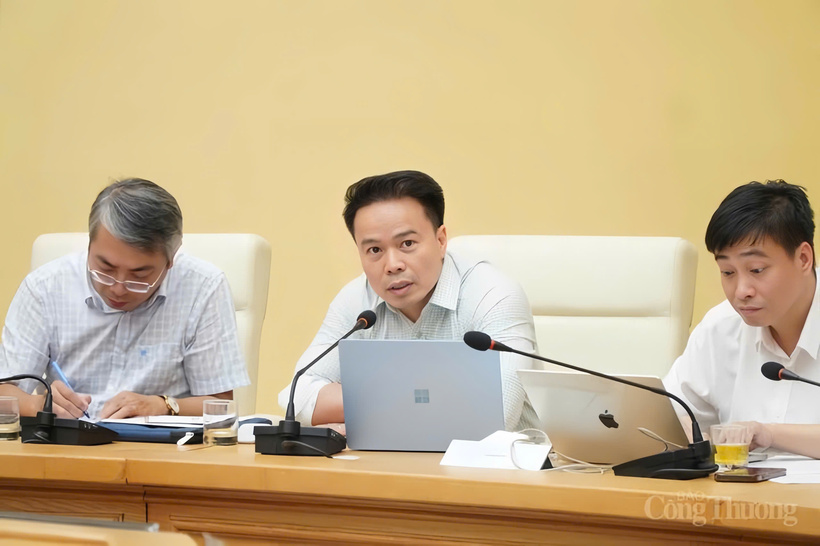
Ngo Chung Khanh, Deputy Director General of the Multilateral Trade Policy Department, shares his insights during the session.
Focusing on Article 41 concerning special support policies for vulnerable groups, Bui Nguyen Anh Tuan, Deputy Director General of the Domestic Market Management and Development Department, underscored the practical significance of this policy, particularly for cooperatives, ethnic minorities, and people in mountainous and island regions.
“We should not let this provision remain a mere declaration. It needs to be substantiated with concrete programs such as digital infrastructure support, online sales training, and product marketing assistance for cooperatives, farmers, and ethnic minority communities”, Bui Nguyen Anh Tuan said.

Deputy Director General of the Department for Domestic Market Management and Development Bui Nguyen Anh Tuan.
According to him, Vietnam’s e-commerce sector has been expanding rapidly, with growth accelerating from 18 percent annually in previous years to over 30 percent in the first nine months of this year, evidence of the market’s strong momentum under the right policy direction. Therefore, support policies for e-commerce should be integrated into national target programs to ensure sustainability and coherence.
Responding to the comments, Deputy Minister Tan affirmed that in addition to policies, implementation measures and supporting resources are essential. For cooperatives, collective economies, and ethnic communities, legal provisions must be concrete and feasible. Specialized agencies should consider integrating e-commerce development into national programs, from infrastructure and platforms to online sales assistance, while recognizing successful models, combining traditional markets and digital commerce, to create new consumption channels for agricultural and specialty products.
Representatives from the General Department of Taxation under the Ministry of Finance also contributed significant input. They proposed extending the minimum data retention period for goods and service information posted on e-commerce platforms from 12 months to at least 24 months, in line with Decree 53/2022/ND-CP guiding the Law on Cybersecurity, thereby facilitating tax management of e-commerce and livestream sales activities.
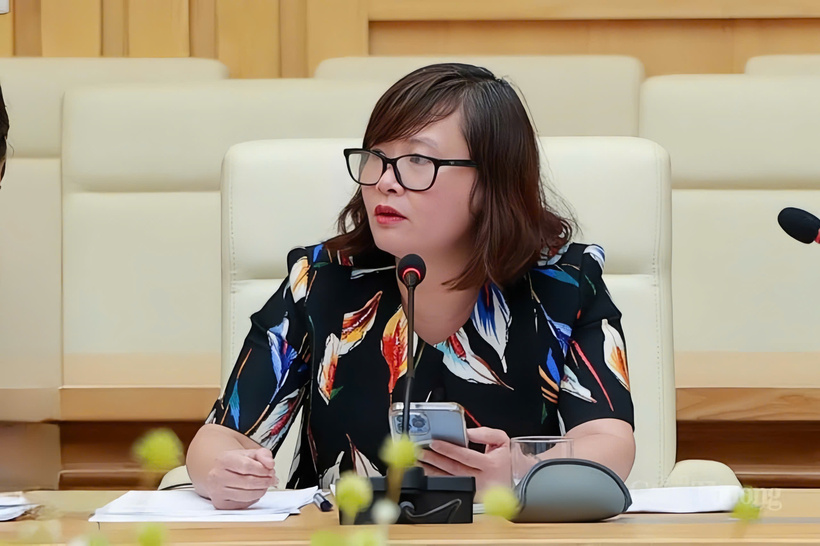
A representative from the General Department of Taxation under the Ministry of Finance shares insights during the session.
Regarding Article 44 on e-commerce databases, the General Department of Taxation suggested clarifying the MoIT’s responsibilities in three aspects, issuing data connection standards among ministries; developing technical infrastructure for information sharing; and establishing mechanisms for inter-ministerial data exchange.
On taxation policy, the agency supported studying appropriate incentives to foster e-commerce development but emphasized that these incentives must be integrated into existing tax legislation such as the Law on Value-Added Tax and the Law on Corporate Income Tax. It noted that tax revenues from e-commerce this year have increased by 50–60 percent, partly due to back-tax collection from previous years.
At the meeting, the representative of the Ministry of Science and Technology proposed broadening the definition of “electronic contract data” to include certificates, documents, and related information generated before and after signing, ensuring data integrity and evidentiary value.
Other recommendations included adding prohibitions aligned with related laws, extending the data retention period beyond 24 months to fit e-transaction characteristics, and revising overlapping or inconsistent provisions. They also called for clear regulations on licensing amendments, violation handling, and transitional clauses to enhance coherence and feasibility.
Promoting sustainable e-commerce development
During the discussion, the representative of the Vietnam Trade Promotion Agency under the MoIT suggested the drafting team further specify several key elements in the draft law.
Provisions defining “large digital platforms” (Articles 3, 16, 17, 18, 31) currently lack quantitative criteria. Without clear thresholds, enforcement could be difficult, particularly in monitoring obligations and platform accountability. The agency recommended referencing benchmarks in other legislation, such as the Law on Electronic Transactions or the Law on Consumer Protection, like user-base thresholds (e.g., around three million users) to ensure consistency.
Regarding Article 39 on “green e-commerce,” the agency noted that the draft fails to connect with national or international standards on sustainability, risking inconsistent self-defined “green” criteria across platforms. It proposed reviewing the draft to align management and trade promotion in the digital environment with existing laws on trade promotion, advertising, and sales stimulation, avoiding overlapping authority while encouraging sustainable e-commerce development.
A representative from the MoIT’s Legal Department emphasized that the draft law must accurately reflect the nature of relationships in this sector, distinguishing those between service providers and consumers from those between service providers and regulatory bodies. The law should remain flexible, safeguarding consumer interests while clearly defining obligations, responsibilities and coordination mechanisms with state agencies.

Members of the Drafting Committee are in attendance at the session.
Concerning its application to the banking sector, the department proposed adding provisions specifying that where banking law does not yet apply, the Law on E-Commerce would take precedence. Many current banking applications offer e-commerce services such as movie or lottery ticket sales without clear legal oversight, the department noted.
It also pointed out that cross-border services under international agreements do not fully cover e-commerce in the narrow sense. Treating e-commerce merely as a conventional cross-border service could create disparities in tax and legal obligations. The law must uphold fairness, comply with the Constitution and international commitments, and protect domestic enterprises’ interests during integration and implementation.
Concluding the session, Deputy Minister Nguyen Sinh Nhat Tan affirmed that the feedback received was vital for enhancing the draft law’s feasibility and alignment with international commitments. He requested the E-Commerce and Digital Economy Agency to promptly consolidate and specify all recommendations for timely coordination with the National Assembly’s Economic and Financial Committee.
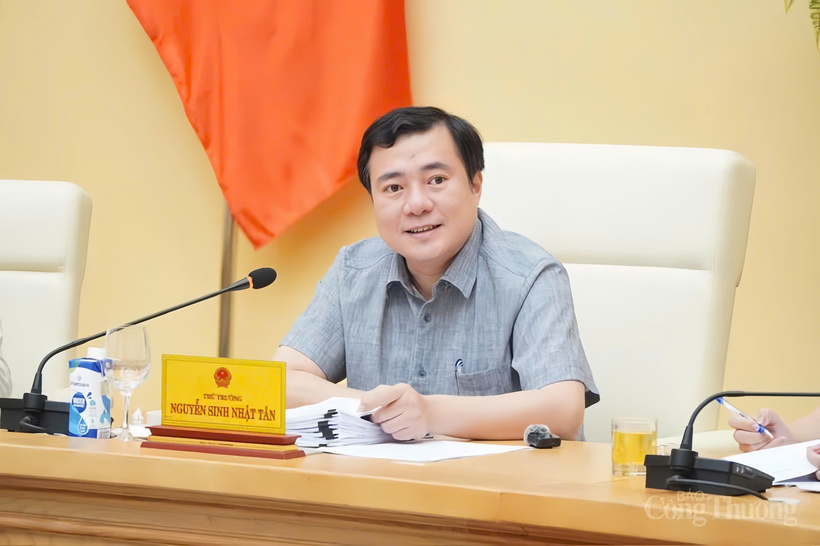
Deputy Minister of Industry and Trade Nguyen Sinh Nhat Tan delivers the concluding remarks of the session.
For issues with divergent opinions, he urged special attention to cross-border e-commerce regulations to ensure strict compliance with Vietnam’s international treaties.
On combating counterfeit and fraudulent goods, Deputy Minister Tan stressed that the National Assembly places strong emphasis on this issue as a cornerstone of consumer trust. The law must strengthen platform accountability in monitoring goods and services traded online, in connection with national anti-smuggling and intellectual property enforcement programs.
“E-commerce can only thrive when it earns consumer trust. To build that trust, combating commercial fraud, counterfeiting, and intellectual property violations must be done effectively. All administrative procedures in e-commerce should be handled digitally, manual management is no longer viable in the digital age”, Deputy Minister Nguyen Sinh Nhat Tan underlined.
Previously, on the afternoon of October 3, the National Assembly’s Economic and Financial Committee held its fourth plenary session to review the draft Law on E-Commerce. The MoIT had already submitted the draft to the Government and the National Assembly for preliminary assessment before presentation to the National Assembly Standing Committee.

19:05 | 23/03/2025 14:11 | 08/01/2026Industry

19:05 | 23/03/2025 14:08 | 08/01/2026Trade

19:05 | 23/03/2025 14:07 | 08/01/2026Trade

19:05 | 23/03/2025 14:06 | 08/01/2026Trade
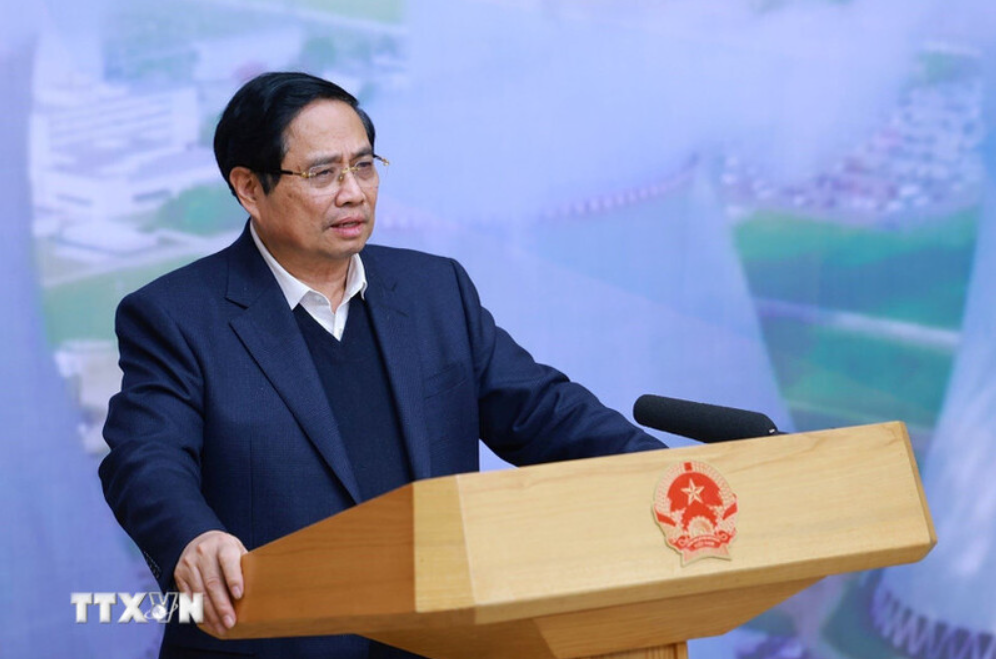
19:05 | 23/03/2025 14:03 | 08/01/2026Industry